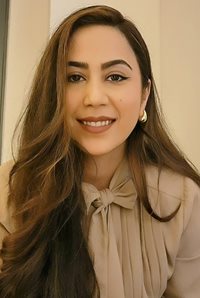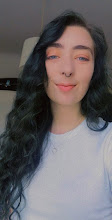22-26 September 2024, Vilnius, Lithuania
Course director: Elizabeth Forde, Assistant Professor, Trinity College Dublin, Ireland
M: My name is Maryam Hazem and I’m a radiation therapy specialist currently working at Nepean Cancer Care Centre in Sydney, Australia. I specialise in thorax and abdominal stereotactic body radiotherapy techniques, as well as stereotactic radiosurgery for brain tumours. My research interests include motion management strategies to aid in margin reduction for stereotactic ablative radiotherapy cases. I completed my Master’s in radiation therapy at the University of Sydney and have since worked across several departments across the state, gaining valuable experience in radiation therapy CT simulation, planning, and treatment techniques.
K: I am Katharina Stelzhammer. I'm a radiation therapist and I have been working at the University Hospital for Radiotherapy and Radiooncology in Salzburg, Austria, for around three years. Being in my early career I’m mostly working on the treatment machines. My professional interests cover surface guidance, motion management and intraoperative radiation therapy.
Why did you choose to attend this course?
M: Continuous professional development is highly encouraged and supported in our department, and with the constant advances in technologies, I’m always seeking out new forums to take part in networking with my fellow professionals across the world and to share experiences and improve our practices. This was the basis for my interest in attending this course, as well as my personal drive for career development.
K: I try continuously to learn and to develop my overall knowledge and skill set. With that, and with all the recent developments and all the challenges to come in our field, I thought the aim of the course was very fitting and would definitely benefit me.
What aspects of the course were the most interesting and why?
M: It is fascinating to observe similar challenges in modern radiotherapy across the globe, despite the different technologies and techniques that are available. I found myself in valuable discussions about our processes and treatment strategies “across the other side of the world”. As I have had comprehensive planning and treatment experiences in Australia, I was able to network with fellow dosimetrists as well as radiation therapists from across Europe.
K: What made the course overall really interesting was not only the wide range of topics but also getting different interdisciplinary points of view about those topics. The faculty team consisted of members of all kinds of professions, and they all did an amazing job in giving us a variety of perspectives.
Did the course activities improve your knowledge and skills in the relevant subject?
M: The faculty team presented discussions of very high quality with theoretical as well as practical, clinical examples. The interactive style of presentations really enhanced the course experience and encouraged participant involvement throughout the days.
K: The workshops covered a lot of the main topics of the course and were such a great way to take all the insights we got and actively put them to use. For me personally, as I work only on the treatment machines, having the possibility actively to do things that I don't do in my everyday work life, like delineation and margin calculation, was such a valuable enrichment for me.
Did the course meet your expectations? If so, how?
M: It was encouraging to get confirmation that our department offers high standards of service. I have made valuable professional alliances through networking, which will make this experience one to remember.
It was great to see some discussion of deep inspiration breath-hold with surface-guided radiation therapy as that is something we are currently implementing.
K: Yes, the course met my expectations, as it inspired me through the lectures per se, as well as through discussions with everyone who took part in or was involved with the course, to get new ideas on various topics.
List the important takeaways following the course.
M: The inter-observer variability in target and organs-at-risk (OAR) delineations was highlighted through the course pre- work and team discussions. The impact this has on target and OAR constraints can be profound; therefore, delineation consistency within the department is crucial for reporting purposes.
K: Getting insights into delineation of OAR and getting valuable inputs, tips and tricks from radiation oncologists was an important takeaway for me.
How would you encourage someone who has never been to an ESTRO course to join this course next year/in two years?
M: This course has valuable content to get an overview of radiation therapy practices across Europe. I would highly encourage professionals with interests in different approaches and radiotherapy possibilities to attend this course.
K: I would definitely recommend this course to you if you are a radiation therapist at any stage of your career who wants to get a detailed look into all current topics in radiotherapy from very passionate experts in the field. I would also recommend it to you if you want to exchange your experiences and ideas with professionals from all over the world.

Maryam Hazem
Radiation therapy specialist
Nepean Cancer Care Centre
Sydney, Australia
Maryam.hazem@health.nsw.gov.au

Katharina Stelzhammer
Radiation therapist
University Hospital for Radiotherapy and Radiooncology
Salzburg, Austria
k.stelzhammer@salk.at